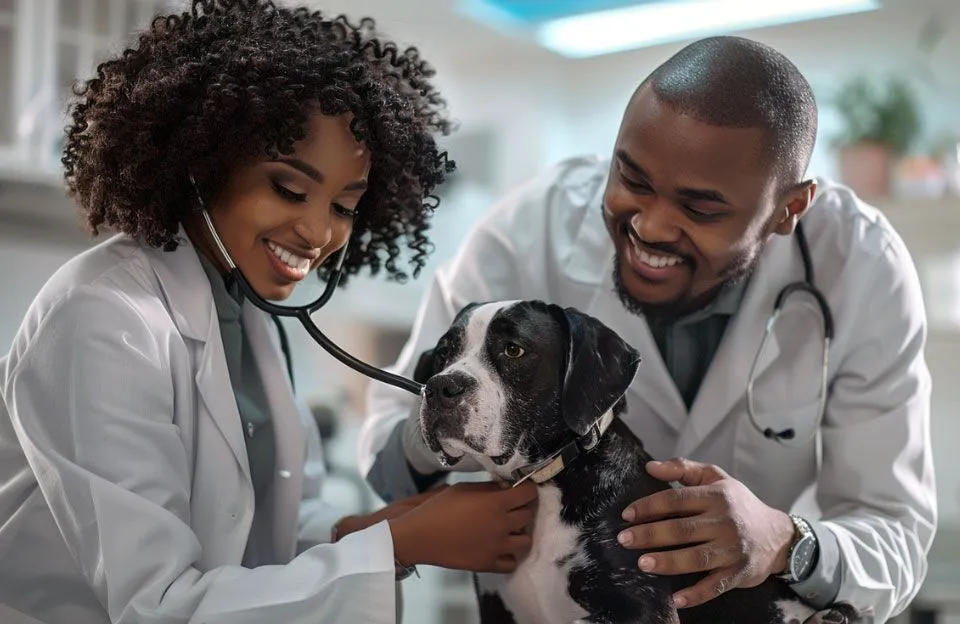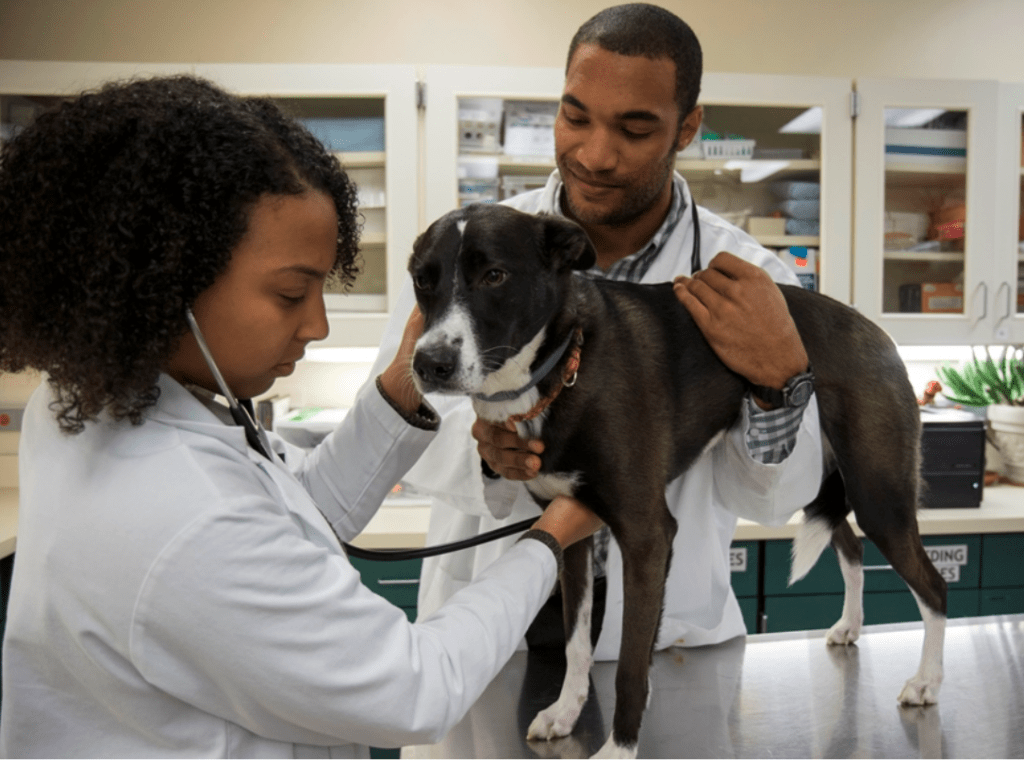Master of Veterinary Science (M.V.Sc)
About department
description
Master of Veterinary Science (M.V.Sc) is a specialized postgraduate degree program focused on advanced studies and research in veterinary medicine and animal science. It is designed to provide veterinarians with specialized knowledge and skills in specific areas of veterinary practice, research, and academia.


Connect with us
Beneficial
- Course Level: The M.V.Sc program is at the postgraduate level, typically pursued after completing a Doctor of Veterinary Medicine (D.V.M) degree or an equivalent veterinary qualification. It is suitable for veterinarians seeking to specialize in a particular area of veterinary medicine or advance their careers in research, academia, or specialized clinical practice.
- Duration: The duration of an M.V.Sc program varies depending on the institution, country, and specific requirements of the program. It typically takes two to three years to complete when pursued full-time.
- Mode: M.V.Sc programs may be offered in both full-time and part-time modes to accommodate the needs of students with different schedules and commitments. Some programs may also offer online or distance learning options, allowing students to complete their studies remotely.
- Eligibility Criteria: The eligibility criteria for admission to an M.V.Sc program vary by institution but generally require applicants to have a D.V.M degree or an equivalent veterinary qualification from a recognized university or college. Some programs may also require relevant work experience or research experience in veterinary medicine.
- Admission Process: The admission process for M.V.Sc programs typically involves submitting an application through the respective institution’s admissions portal, along with required documents such as transcripts, letters of recommendation, a statement of purpose, and/or standardized test scores. Some programs may also require applicants to attend interviews or submit additional materials such as a research proposal or portfolio.
- Areas of Specialization: M.V.Sc programs offer a wide range of specializations within various disciplines of veterinary medicine, allowing students to tailor their studies to their interests and career goals. Some common areas of specialization include:
- Small animal medicine and surgery
- Large animal medicine and surgery (e.g., equine, bovine, ovine)
- Veterinary pathology
- Veterinary microbiology
- Veterinary epidemiology and public health
- Veterinary pharmacology and toxicology
- Veterinary anatomy and physiology
- Wildlife and conservation medicine
- Career Opportunities: Graduates of M.V.Sc programs can pursue various career paths depending on their specialization and interests. They may work in:
- Veterinary clinics and hospitals: Providing clinical services and medical care to animals in private practice or specialized veterinary clinics.
- Research institutions: Conducting scientific research and contributing to advancements in veterinary medicine, animal health, and welfare.
- Government agencies: Working in regulatory bodies, public health organizations, and wildlife conservation agencies to address animal health issues, disease control, and food safety.
- Academic institutions: Teaching veterinary students, conducting research, and publishing scholarly articles in veterinary journals.
- Industry: Working for pharmaceutical companies, biotechnology firms, and animal health companies in roles related to product development, regulatory affairs, and sales/marketing of veterinary products and services.
- Non-profit organizations: Contributing to animal welfare organizations, animal rescue shelters, and humanitarian aid organizations focusing on animal health and disaster response.
- Course Level: The M.V.Sc program is at the postgraduate level, typically pursued after completing a Doctor of Veterinary Medicine (D.V.M) degree or an equivalent veterinary qualification. It is suitable for veterinarians seeking to specialize in a particular area of veterinary medicine or advance their careers in research, academia, or specialized clinical practice.
- Duration: The duration of an M.V.Sc program varies depending on the institution, country, and specific requirements of the program. It typically takes two to three years to complete when pursued full-time.
- Mode: M.V.Sc programs may be offered in both full-time and part-time modes to accommodate the needs of students with different schedules and commitments. Some programs may also offer online or distance learning options, allowing students to complete their studies remotely.
- Eligibility Criteria: The eligibility criteria for admission to an M.V.Sc program vary by institution but generally require applicants to have a D.V.M degree or an equivalent veterinary qualification from a recognized university or college. Some programs may also require relevant work experience or research experience in veterinary medicine.
- Admission Process: The admission process for M.V.Sc programs typically involves submitting an application through the respective institution’s admissions portal, along with required documents such as transcripts, letters of recommendation, a statement of purpose, and/or standardized test scores. Some programs may also require applicants to attend interviews or submit additional materials such as a research proposal or portfolio.
- Areas of Specialization: M.V.Sc programs offer a wide range of specializations within various disciplines of veterinary medicine, allowing students to tailor their studies to their interests and career goals. Some common areas of specialization include:
- Small animal medicine and surgery
- Large animal medicine and surgery (e.g., equine, bovine, ovine)
- Veterinary pathology
- Veterinary microbiology
- Veterinary epidemiology and public health
- Veterinary pharmacology and toxicology
- Veterinary anatomy and physiology
- Wildlife and conservation medicine
- Career Opportunities: Graduates of M.V.Sc programs can pursue various career paths depending on their specialization and interests. They may work in:
- Veterinary clinics and hospitals: Providing clinical services and medical care to animals in private practice or specialized veterinary clinics.
- Research institutions: Conducting scientific research and contributing to advancements in veterinary medicine, animal health, and welfare.
- Government agencies: Working in regulatory bodies, public health organizations, and wildlife conservation agencies to address animal health issues, disease control, and food safety.
- Academic institutions: Teaching veterinary students, conducting research, and publishing scholarly articles in veterinary journals.
- Industry: Working for pharmaceutical companies, biotechnology firms, and animal health companies in roles related to product development, regulatory affairs, and sales/marketing of veterinary products and services.
- Non-profit organizations: Contributing to animal welfare organizations, animal rescue shelters, and humanitarian aid organizations focusing on animal health and disaster response.



